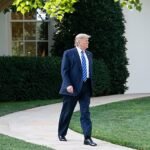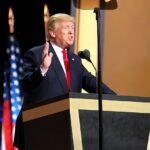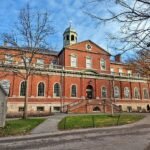President Donald Trump announced Monday that he is considering redirecting $3 billion in federal grants previously allocated to Harvard University to trade schools across the United States, escalating an ongoing dispute with the Ivy League institution. The proposal, shared via Trump’s Truth Social platform, follows recent actions by his administration to freeze Harvard’s federal funding and restrict its ability to enroll international students.
The grants in question, primarily awarded through the National Institutes of Health for biomedical and scientific research, were frozen earlier this month by agencies including the NIH, Department of Energy, and Department of Defense, citing that the funds “no longer effectuate agency priorities.” Harvard has received approximately $3 billion in federal grants, which support research in fields like medicine and engineering, activities not typically conducted at trade schools. Trump’s statement described the potential reallocation as “a great investment” for the US, emphasizing the need for practical education in trades like welding and construction.
The move is part of a broader conflict between the Trump administration and Harvard, which began in March when the university rejected demands to overhaul its admissions, governance, and diversity policies. The administration accused Harvard of fostering antisemitism and promoting liberal ideologies, claims the university denies. Harvard has filed lawsuits in federal court in Boston, arguing that the funding freeze and restrictions on international student enrollment violate its First Amendment rights and are unlawful. On May 23, a federal judge temporarily blocked the administration’s ban on Harvard enrolling foreign students, providing relief to nearly 6,800 international students who represent 27% of the university’s enrollment.
“We are still waiting for the Foreign Student Lists from Harvard to determine how many radicalized lunatics should not be let back into our Country,” Trump wrote in a follow-up Truth Social post, accusing the university of withholding information. Harvard President Alan Garber responded, stating, “No government—regardless of which party is in power—should dictate what private universities can teach, whom they can admit and hire, or which areas of study they can pursue.”
The proposal has sparked varied reactions. Supporters, including some voices on social media, argue that redirecting funds to trade schools addresses labor shortages in critical industries. “Investing in practical skills that build our nation, not more elite degrees, is what America needs,” one user posted. The National Student Clearinghouse Research Center reports rising enrollment in trade schools, reflecting growing interest in vocational training amid high college costs. In 2024, both Trump and former Vice President Kamala Harris advocated for increased investment in apprenticeships, highlighting bipartisan interest in trade education.
Critics, including academic and legal experts, question the proposal’s feasibility and legality. Most federal grants to Harvard are congressionally appropriated for specific research purposes, and reallocating them to trade schools may require legislative approval. The American Association of Universities warned that disrupting research funding could harm advancements in medicine and technology, noting that NIH grants generate $2.56 in economic activity per dollar spent. Senator Bernie Sanders, in a post on social media, praised Harvard’s resistance, urging other universities to defend their autonomy.
The economic and social implications are significant. Harvard’s lawsuits contend that the funding freeze threatens its research capabilities and financial stability, with the university seeking to borrow $750 million to offset losses. Trade schools, while addressing labor needs, may lack the infrastructure to absorb such funds for research purposes. The proposal also aligns with Trump’s broader push to influence universities, with similar funding freezes targeting Columbia, Penn, and Cornell.
Legal battles and public forums are expected to shape the proposal’s future. Harvard’s lawsuits are ongoing, with a court date scheduled for July 21. The administration has not clarified how the funds would be redistributed or which trade schools would benefit. As the debate unfolds, the conflict underscores tensions between federal authority and academic independence, with potential consequences for higher education and vocational training nationwide.

















